“A Piece of My Mind”
April 2014 Newsletter from Donald Shoemaker
Advancing Christian Faith and Values, Defending Religious Liberty for All, Supporting Civility and the Common Good through Preaching, Teaching, Writing, Activism and Reasoned Conversations
Evil, Suffering & Tragedy—
Proofs of God’s Displeasure?
A self-styled member of the clergy told the Seal Beach City Council and all others listening on March 24 that the city’s neglect of the homeless led to the “Salon Massacre” in October, 2011—Orange County’s worst mass murder, eight innocent lives. Had city officials listened to advocates of services for the homeless, “God would have been unjust to allow that massacre in this city. ” Read on…
Bible Insight:
“Who has understood the mind of the Lord?
or instructed him as his counselor?
Whom did the Lord consult to enlighten him,
and who taught him the right way?
Who was it that taught him knowledge
or showed him the path of understanding?”
– Isaiah 40:13-14
Do our moral actions or inactions bring identifiable judgments from God? Does anyone have the right to tell us, “Thus saith the Lord!” when tragedy strikes?
Biblically speaking, bad things happen for many reasons or (to our finite understanding) for no reason at all. Sometimes tragedy strikes those who are simply in the wrong place at the wrong time.
Sometimes punishment can come from God for violating his commandments. This can be seen in the Law of Moses (see Deuteronomy 30:15-20 for summary promises of blessing and judgment; the warnings are common throughout the Mosaic Law as found in Exodus, Leviticus, Numbers and Deuteronomy). Warnings are also common in the prophetical writings (for great examples, read the first two chapters of Amos).
Other scriptures speak of the natural consequences of the choices we make, good or bad. I highly recommend reading the Book of Proverbs to see literally hundreds of moral truisms (generalizations) on the consequences of conduct.
“The prudent see danger and take refuge,
but the simple keep going and suffer for it.” (27:12)
“Those who work their land will have abundant food,
but those who chase fantasies will have their fill of poverty.” (28:19)
“Drunkards and gluttons become poor,
and drowsiness clothes them in rags.” (23:21)
But still other scriptures make it clear that many things that happen to us are not subject to moral cause-and-effect equations. The greatest example is from one of the oldest works of literature—the Book of Job. If you have never read this Old Testament book with its splendid poetry, treat yourself to it!
Job was a good and honorable man, wealthy and blessed. Then he was struck with a rapid series of disasters: (1) great evil: his animals were stolen and his servants killed by marauding bands; (2) great tragedies: fire destroyed his sheep and killed more servants, and a wind collapsed his son’s house and all his children were killed; (3) great suffering: he himself was covered with painful sores from head to toe. Yet Job retained his trust in God, in the face of no answer to the question why.
Enter his three friends. Most of the remainder of the book is the poetic arguments back and forth between Job and his “counselors.” They are sure that Job’s own conduct must have brought God to bring these disasters his way. Job’s protests are judged as proof of his blindness to his own deeds and his willful failure to understand the moral cause-and-effect equation.
Obedience brings blessing and sin brings punishment—it’s as simple as that! “Blessed is the man whom God corrects; so do not despise the discipline of the Almighty” (Job 5:17). That’s the theory—alive today—set forth by Job’s “counselors.”
Certainly God has compassion for the poor and homeless and calls on us for compassion as well. “Whoever oppresses the poor shows contempt for their Maker, but whoever is kind to the needy honors God” (Proverbs 14:31).
But poverty is complex and can have many causes: oppression, natural and economic happenings, choice and slothfulness among others. How we respond to poverty must take the range of causes into consideration. And the solutions need to be efficient, effective ones that will lift a person up rather than reinforce the circumstances.
So the moral cause-and-effect linkage between a failure to provide housing for the homeless and a mass murder is fallacious in the extreme.
How can one prove that, in the case at hand, God demands local housing as the solution for the homeless? Over many years I’ve known many of these men and women through talking with them on the street, providing meals for them, and welcoming them to church. Many will not change their situations. They “come and go.” Some will ask money from others while spurning truly helpful assistance. Alcoholism runs deep. Housing alone isn’t the answer.
Why would God punish the innocent for the wrongful omission of others, if indeed there was omission? Who is qualified to draw the connection?
And who can claim to know the mind of God and be the voice of God, to speak “thus saith the Lord” and lecture others? Again, over the years I’ve had many visitors come to church and tell me God sent them here today to give me a message. I will tell them I don’t want to hear it.
I hope and pray that the consciences of good citizens will not be troubled by preaching that draws a cause-and-effect between sin and suffering. And I pray that people’s minds will not become jaded and critical of Christian people and churches who are struggling to understand and speak and practice the true will and love of God in a world full of challenges and difficulties.
Other theological and philosophical issues:
- Is God “unjust” if he doesn’t intervene to prevent an “undeserved massacre”? And aren’t there many examples of this evil in the world today? Theologically speaking, it is impossible to charge God with injustice, since he is the source of all justice and justice is defined by his character. Abraham’s rhetorical question before God was right: “Will not the Judge of all the earth do right?” (Genesis 18:25).
- A distinction between what God “allows” versus what God “ordains” when used to exculpate God from responsibility—this won’t fly. If God foresees an action (like mass murder) and possesses the power to forestall it but instead permits it, how can saying God “allowed it but didn’t ordain it” excuse him from moral culpability? If I’m standing beside a small child who will very likely run out into a busy street unless I restrain him, and if I do not act to restrain him when it is within my knowledge and power to do so, how could I be exempt from a moral claim of negligence? Personally, I think this matter is insoluble with regard to God’s knowledge and action or inaction. The Bible seems to let the question rest.
Religious Liberty Vigilance – Battle of the Cross

“Congress shall make no law respecting an establishment of religion, or prohibiting the free exercise thereof…”
– 1st Amendment (Our “First Freedom” in the Bill of Rights)
“Those who expect to reap the blessings of freedom must…undergo the fatigue of supporting it.”
– Thomas Paine
“By this conquer” – Message in the vision of Constantine (312 AD)
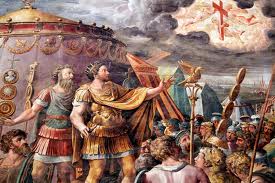
I don’t know what Constantine really saw that day. I do have a problem whenever God is enlisted to provide endorsement to actions of the state. Especially since Jesus declared to the Roman Governor Pontius Pilate,
“My kingdom is not of this world”
(John 18:36).
Religious endorsement of secular power or secular endorsement of religion is one thing. Recognition of religious heritage in a context that recognizes other features of heritage is something else. Thus, I fully endorse the decision of the Los Angeles County Board of Supervisors to restore a cross onto the county seal.
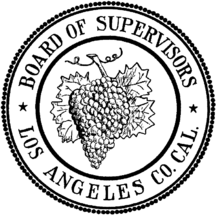
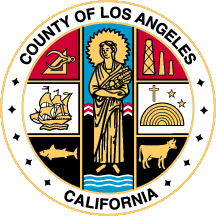
In 1957, liberal Democrat Kenneth Hahn proposed a redesign of the seal to recognize the diverse heritage of the county.
Beside the cross and in the middle of the seal was a prominent image of Pomona, goddess of agriculture and abundance. That’s didn’t seem to concern “church and state separationists” the way a tiny cross did. So, fearing a lawsuit by the ACLU, county supervisors surrendered without a fight and approved a new seal in 2004.
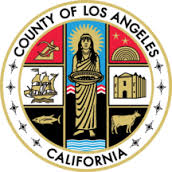
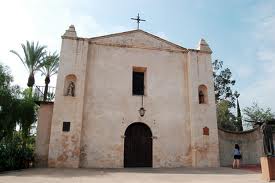
The new seal featured an Indian woman (in a servile role, according to critics) and the likeness of the San Gabriel Mission, sans cross (which some said really made it look more like a Taco Bell). It also eliminated politically incorrect oil derricks.
But in January 2014 two supervisors added liberal supervisor Mark Ridley-Thomas to the cause and still another seal with a small cross on top of the mission was approved 3-2. The Los Angeles Times gave a hand-wringing editorial on February 7, “County supervisors voted last month to add a Christian cross, an unmistakable symbol of one religious faith, to the county seal, an official symbol of government. Blending the Christian symbol into the government one signals an impermissible intertwining of church and state. It practically begs for a lawsuit.”
Does this “favor” one religion over others? Would a “reasonable observer” see it as an “endorsement of religion”? If so, what about Pomona? Or Minerva, goddess of wisdom, on the California seal? Don’t these “endorse” paganism? Don’t think that’s a dead faith these days. Common sense, please!
No, I agree with Supervisor Don Knabe, who says the new seal was adopted for historical correctness, not political correctness. Radical secularists relax!
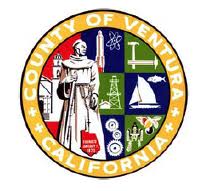
Note: the Ventura County seal has two crosses! One is on Mission Buenaventura, the other on the likeness of Father Junipero Serra, founder of the mission, who also is holding a Bible!
Easter Message —
“…just as Christ was raised from the dead through the glory of the Father, we too may live a new life” – Romans 6:4

Good News from Grace
Grace Community Church of Seal Beach
138 8th Street (at Central in “Old Town”)
Good Friday Communion Services at Noon and 7:00 p.m.
Easter Sunday Services at 8:00, 9:30 and 11:00 (traditional style), 9:30 and 11:00 (contemporary style)
Don’s Upcoming Ministries
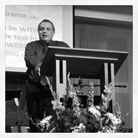
April 5 at 8:00 a.m. – Sing the National Anthem at the opening of Seal Beach’s 5/10K race.
May 4 – Speak in Morning Worship Services at Grace Community Church of Seal Beach
(8:00, 9:30 and 11:00)
How Is the Bible Regarded in America?
This study analyzed the Bible mindedness of the top 100 cities by population across the U.S. in 2013. Bible mindedness was calculated based on combined levels of regular Bible reading and residents’ belief in the Bible’s accuracy. – American Bible Society
www.americanbible.org/features/americas-most-bible-minded-cities
10 Most Bible-Minded Cities (all in the South but one)
- Chattanooga, Tennessee
- Birmingham, Alabama
- Roanoke/Lynchburg, Virginia
- Springfield, Missouri
- Shreveport, Louisiana
- Charlotte, N. Carolina
- Greenville/Spartanburg, S. Carolina/Asheville, N. Carolina
- Little Rock, Arkansas
- Jackson, Mississippi
- Knoxville, Tennessee
10 Least Bible-Minded Cities (7 in New England or New York)
- Providence, Rhode Island/New Bedford, Massachusetts
- Albany, New York
- Boston, Massachusetts
- San Francisco, California
- Cedar Rapids, Iowa
- Buffalo, New York
- Hartford/New Haven, Connecticut
- Phoenix, Arizona
- Burlington, Vermont
- Portland, Maine
California Cities
- Bakersfield (21st)
- Sacramento/Modesto (66th)
- Fresno (70th)
- San Diego (72nd)
- Los Angeles (73rd)



